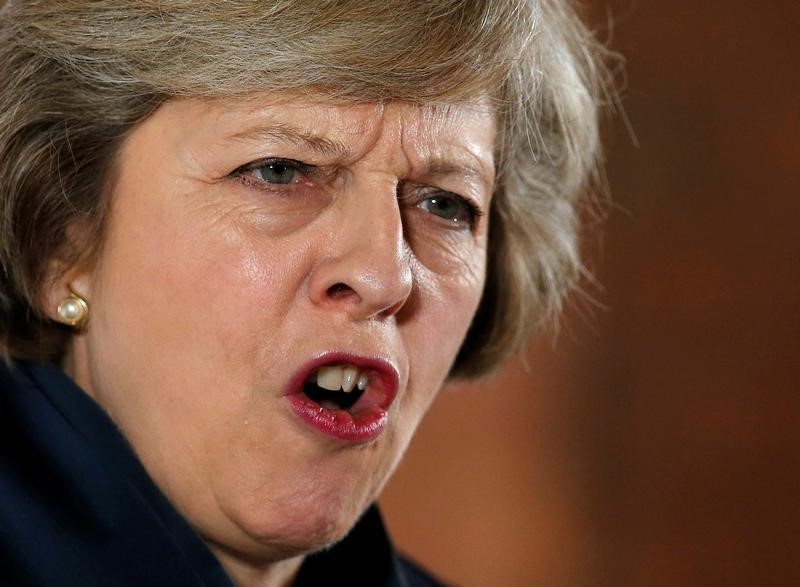(Bloomberg) -- Follow @Brexit on Twitter, join our Facebook (NASDAQ:FB) group and sign up to our Brexit Bulletin.
Theresa May is playing for time.
Faced with a humiliating defeat on her Brexit deal, the embattled U.K. prime minister announced to the House of Commons she would defer a vote and return to Brussels to seek “assurances” from European Union leaders. Her words signal that she doesn’t expect much of substance will be changed. Nor would she be drawn on when the government will put her unpopular deal to a vote.
That raises the prospect that May will be back in Parliament in January with virtually the same deal, relying on tanking markets and frightening no-deal preparations to convince lawmakers to back her. The parliamentary arithmetic won’t have changed -- only an election can do that.
In Brussels, European Council President Donald Tusk called a leaders’ meeting on Brexit for Thursday, but made clear the deal would not be renegotiated. May’s critics hate the agreement she painstakingly negotiated because they think she’s allowing the U.K. to be trapped in the EU’s orbit indefinitely -- a situation they consider even worse than current membership.
"We will not renegotiate the deal," Tusk said in a tweet. "But we are ready to discuss how to facilitate ratification."
May said the government will step up preparations in case Britain does crash out of the bloc on March 29 -- just 16 weeks from now. She’s wielded the threat of no-deal -- the worse-case scenario for business -- as a weapon to try and bring rebellious Conservatives on both sides of the Brexit debate into line.
It’s a high-stake gamble. The pound hit the lowest since April 2017 as the market judged that the risk of no-deal Brexit has increased. When pressed by members of Parliament to tell them when she would bring the deal back, she refused to answer, saying only that Jan. 21 served as a deadline because it’s the date in the law when the government has to report back to Parliament on what it’s doing if there’s no deal.
"The worst case is no vote until January 21,” according to Societe Generale (PA:SOGN) SA strategist Kenneth Broux, adding that the longer it takes, the lower the pound is likely to fall.
Brexit is testing the limits of the country’s parliamentary system and taken the nation on a wildly unpredictable ride that caused markets to whipsaw and caused the pound to shed more than 15 percent since June 2016, when Britons cast their vote on what was presented as a simple choice of “In” or “Out.” It’s turned out to be much more complicated.
(Adds Tusk.)
